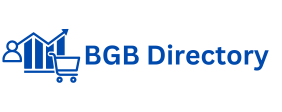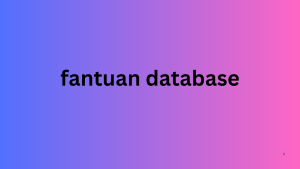In today’s data-driven world, successful marketing campaigns are no longer about casting a wide net but about targeting the right audience with precision. Special databases—curated collections of customer information—have emerged as powerful tools to help businesses refine their marketing strategies. These databases can include demographic details, with special databases purchasing behaviors, engagement history, and more, enabling businesses to craft personalized, effective campaigns.
This article explores how to maximize your marketing campaigns using special databases, highlighting their benefits, strategies for integration, and best practices.
The Benefits of Using Special Databases in Marketing
1. Enhanced Audience Segmentation
Special databases allow businesses to group customers into meaningful categories based on attributes like age, location, preferences, and behavior. This segmentation ensures that your campaigns are highly targeted, fantuan database which leads to improved engagement and conversion rates.
2. Improved Personalization
Customers are more likely to respond to messages tailored to their specific needs and interests. By leveraging the insights in a special database, with special databases you can create personalized offers, recommendations, and content that resonate with your audience.
3. Optimized Resource Allocation
With accurate data, you can focus your marketing efforts and budget on the most promising customer segments, with Special Databases reducing waste and increasing efficiency.
4. Better Campaign Tracking and Analytics
Special databases can track customer interactions across various channels, providing insights into what works and what doesn’t. This data helps in refining strategies for better results.
Strategies for Maximizing Marketing Campaigns with Special Databases
1. Start with Clean Data
The foundation of any successful marketing campaign is accurate and up-to-date information. Regularly update your database to remove outdated or incorrect data and ensure the quality of your insights.
2. Segment Your Audience Thoughtfully
Audience segmentation is key to targeted marketing. Use the data in your database to divide customers into relevant groups, such as:
- Demographics: Age, gender, or geographic location.
- Behavior: Purchase patterns, browsing history, or frequency of interactions.
- Psychographics: Interests, values, and lifestyle choices.
For instance, an online electronics retailer might create separate campaigns for tech enthusiasts, budget-conscious buyers, a complete guide to bulk telegram messaging and professional gamers.
3. Personalize Marketing Campaigns
Leverage your database to craft messages that feel unique to each recipient. Personalization can range from addressing customers by name to offering product recommendations based on their past purchases.
4. Leverage Automation for Scalability
Use marketing automation tools to streamline processes such as email campaigns, social media ads, and SMS marketing. Automation enables you to execute large-scale campaigns while maintaining personalization.
Popular tools like HubSpot, Marketo, or ActiveCampaign can integrate with your database to help you manage, execute, and analyze campaigns effortlessly.
Best Practices for Using Special Databases
1. Ensure Data Privacy Compliance
Respect customer privacy and comply with regulations like GDPR or CCPA. Always obtain explicit consent before collecting or using customer data, with Special Databases and provide clear options for opting out of communications.
2. Track Campaign Performance
Monitor key performance indicators (KPIs) such as click-through rates, open rates, and conversion rates to gauge your campaign’s success. Use insights from your database to refine your strategy and improve outcomes.
3. Test and Optimize Campaigns
Conduct A/B testing to evaluate the performance of different messages, formats, and delivery times. Use these insights to continuously optimize your campaigns for maximum effectiveness.
4. Integrate Across Channels
A special database allows you to deliver a seamless, omnichannel experience. Ensure that your messaging is consistent across platforms like email, social media, SMS, and even offline channels like direct mail.
Examples of Successful Campaigns Using Special Databases
1. E-Commerce Personalization
An online retailer used a special database to send personalized product recommendations based on browsing and purchase history. The result was a 20% increase in click-through rates and a 15% boost in sales.
2. Loyalty Program Optimization
A restaurant chain segmented its database into frequent diners, occasional visitors, and inactive customers. By offering tailored discounts and promotions, with special databases they reactivated 30% of dormant customers and increased repeat visits among loyal diners.
3. Event Marketing
A software company used a special database to invite specific customer segments to a product launch event. By targeting tech-savvy users and existing clients, chine directory the campaign achieved a 50% attendance rate and generated qualified leads.
Conclusion
Special databases are essential tools for maximizing the impact of your marketing campaigns. By using them for segmentation, personalization, and performance tracking, businesses can create highly targeted strategies that drive engagement, loyalty, and revenue.
To fully realize their potential, invest in maintaining clean, compliant data and leverage automation tools for efficiency. When used effectively, special databases transform marketing from a broad effort into a precision-driven strategy, delivering exceptional results.
Adopt special databases into your marketing plan today and take your campaigns to the next level!


